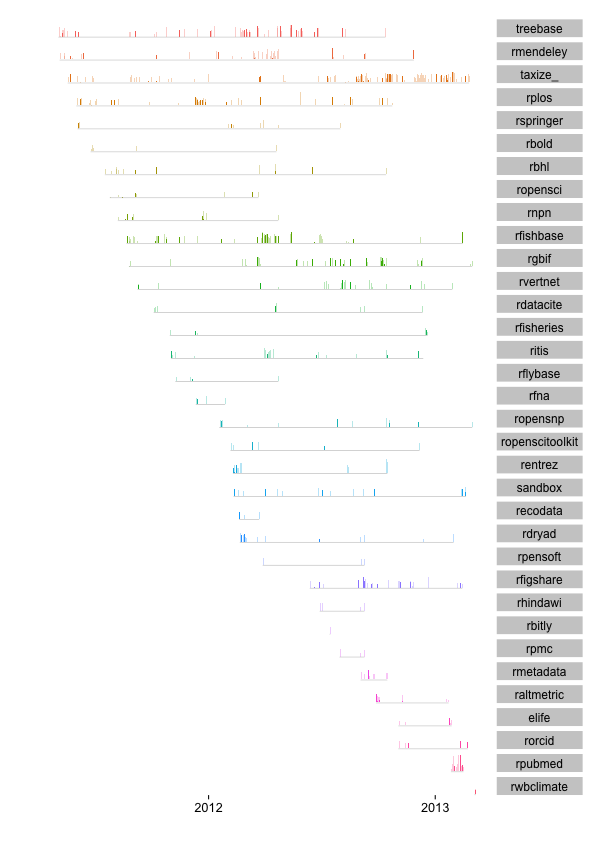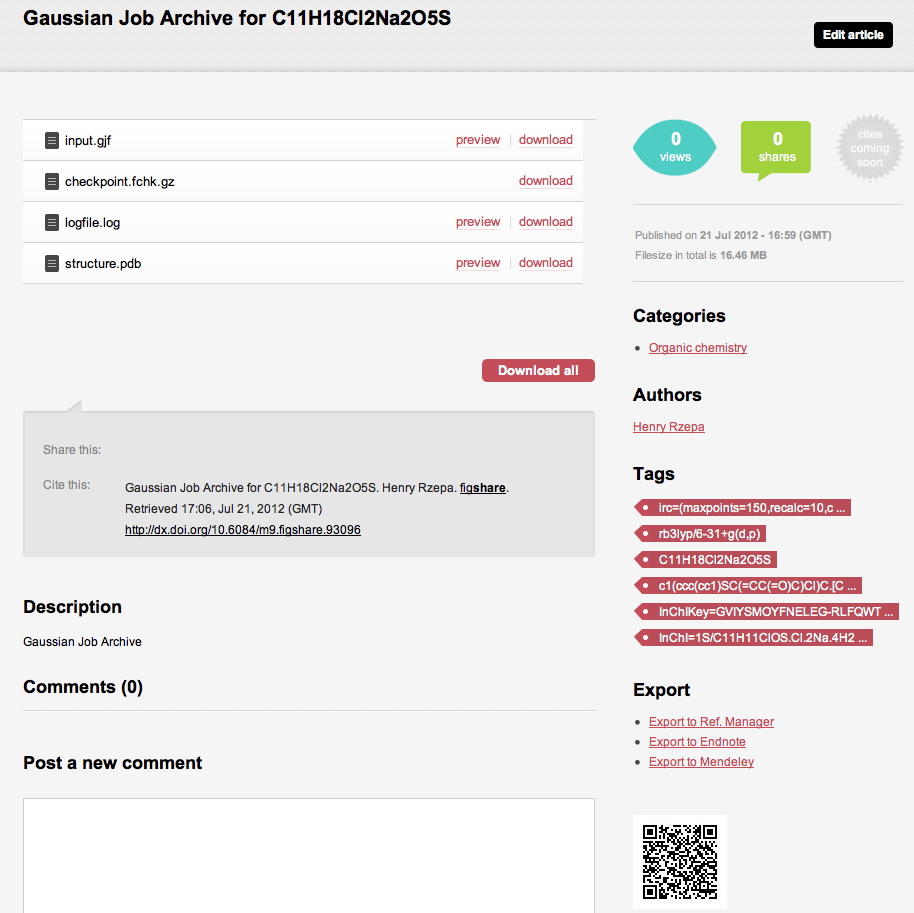Real use cases from people using our software are awesome. They are important for many reasons: 1) They make the code more useable because we may change code to make the interace and output easier to understand; 2) They may highlight bugs in our code;
Messaggi di Rogue Scholar

One of the fun things about developing web sites is learning new tricks, tools, and techniques. Typically I hack away on my MacBook, and when something seems vaguely usable I stick it on a web server.
Scholarly metadata - the meta-information surrounding articles - can be super useful. Although metadata does not contain the full content of articles, it contains a lot of useful information, including title, authors, abstract, URL to the article, etc. One of the largest sources of metadata is provided via the Open Archives Initiative Protocol for Metadata Harvesting or OAI-PMH.
[Europe PMC is pleased to release a new RESTful Web Service, in addition to the existing SOAP service. Both Web Services can be accessed via the ‘Resources’ menu option on the Europe PMC ]{style=“font-family: "trebuchet ms" , sans-serif;”}[homepage]{style=“font-family: "trebuchet ms" , sans-serif;”}[.]{style=“font-family: "trebuchet ms" , sans-serif;”} []{style=“color: #5a595e;
Web-Erfinder Tim Berners-Lee streitet für das offene Internet, auf dem South by Southwest gerade in einer Keynote. Ein Detail seines Auftritts hat Widerspruch geerntet: Berners-Lee hat sich dafür ausgesprochen, Unterstützung für Kopierschutz in den HTML5-Standard zu integrieren.

We have been writing code for R packages for a couple years, so it is time to take a look back at the data. What data you ask? The commits data from GitHub ~ data that records who did what and when. Using the Github commits API we can gather data on who commited code to a Github repository, and when they did it. Then we can visualize this hitorical record.

I blogged about this two years ago and thought a brief update might be in order now. To support the discussions here, I often perform calculations, and most of these are then deposited into a DSpace digital repository, along with metadata. Anyone wishing to have the full details of any calculation can retrieve these from the repository. Now in 2012, such repositories are more important than ever.
[A Web Service of UKPMC content has been released, and is available via the following link: ]{style=“font-family: "trebuchet ms" , sans-serif;”}[http://europepmc.org/SoapWebServices ]{style=“color: blue;
Sometimes, as a break from describing chemistry, I take to describing the (chemical/scientific) creations behind the (WordPress) blog system. It is fascinating how there do seem increasing signs of convergence between the blog post and the journal article. Perhaps prompted by transclusion of tools such as Jmol and LaTex into Wikis and blogs, I list the following interesting developments in both genres.
As part of a course on "phyloinformatics" that I'm about to teach I've been making some visualisations of classifications. Here's one I've put together using jQuery Mobile and the Encyclopedia of Life API. It's pretty limited, but is a simple way to explore EOL using three different classifications.